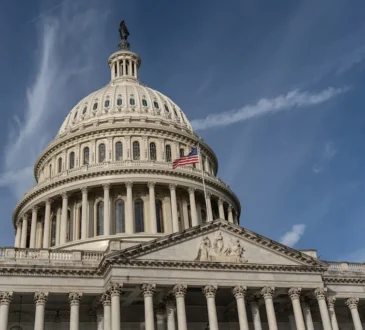
California legislative activity focused upon private equity (PE) group and hedge fund health care transactions has continued notwithstanding California Governor Gavin Newsom’s veto last fall of California Assembly Bill 3129 (AB-3129). As we discussed in previous posts here and here, AB-3129 would have authorized the California Attorney General (AG) to review certain PE group and hedge fund health care transactions, but Governor Newsom vetoed the bill based on his view that the California Office of Health Care Affordability (OHCA) rather than the AG should be assessing proposed health care transactions and their cost and market impacts.
In response to Governor Newsom’s veto of AB-3129, the California legislature passed Senator Christopher Cabaldon’s Senate Bill 351 (SB-351) and Assembly Member Mia Bonta’s Assembly Bill 1415 (AB-1415). As discussed in the legislature, both bills seek to address increased PE group and hedge fund investment in the California health care marketplace within existing frameworks. On October 6 and October 11, respectively, Governor Newsom approved the bills with both effective January 1, 2026. As a follow-up to our prior discussions here and here, we provide further insights regarding SB-351 and AB-1415.
SB-351 Analysis
During an April 2025 California Senate Judiciary Committee hearing, Senator Cabaldon described SB-351 as responding to Governor Newsom’s veto of AB-3129 by adopting its corporate practice prohibitions in the limited context of PE group and hedge fund investment in California physician or dental practices. The corporate practice prohibitions of SB-351 codify and formalize long-standing precedent from California AG opinions and Medical and Dental Board of California regulations and guidance.
Importantly, passive investors, entities solely providing or managing secured debt financing, hospitals and health systems, and public agencies are excluded from the definitions of PE group and hedge funds. Moreover, SB-351 expressly authorizes the California AG to seek injunctive relief and attorneys’ fees against PE groups and hedge funds improperly exerting undue influence or control over the professional clinical judgment of physicians (defined to exclude psychiatrists) or dentists. Specifically, PE groups or hedge funds investing or owning the assets of a physician or dental practice may not interfere with the professional judgment of physicians or dentists in health care decisions by: (1) deciding what diagnostic tests are appropriate; (2) determining the need for referrals or consultations with another licensed health practitioner; (3) limiting care or treatment options available to patients; or (4) setting targets for the number of patients seen or the number of hours worked by physicians or dentists.
Additionally, PE groups or hedge funds may not usurp practitioner clinical judgement with regard to:
- owning or determining the content of medical records;
- selecting, hiring, or firing of health practitioners or medical assistants based in whole or in part upon clinical competency or proficiency;
- setting the parameters that a physician, dentist, or their practice enters into contractual relationships with third parties or other practitioners for the delivery of care;
- making determinations regarding the coding and billing of patient care procedures; or
- approving the selection of medical equipment or supplies utilized by the physician or dental practice.
As noted above, these prohibitions existed prior to SB-351’s passage but now may be expressly enforced by the California AG. Additionally, SB-351 mirrors AB-3129’s prohibitions against PE groups and hedge funds entering into certain non-compete or non-disparagement clauses with physicians or dentists. Any such PE group or hedge fund contractual provision is deemed void and unenforceable as against public policy if the provision prevents:
- any practitioner in a physician or dental practice from competing with that practice in the event of a termination or resignation of that practitioner from the practice; or
- disparaging, opining, or commenting on the practice regarding issues involving quality of care, utilization of care, ethical or professional challenges in the practice, or revenue-increasing strategies utilized by the PE group or hedge fund.
See our general discussion here regarding restrictive covenants in PE transactions.
SB-351 Takeaways
SB-351 proposes to strengthen corporate practice and restrictive covenant prohibitions specifically in the context of PE and hedge fund investment in physician and dental practices by providing the California AG with explicit enforcement authority. We note that the non-compete restriction is generally consistent with California law more broadly and does not apply to otherwise allowable non-competes, such as in connection with the sale of a business. Agreements currently containing non-disparagement restrictions must be removed, and the statutory non-disparagement restriction does not apply to entities beyond PE groups and hedge funds, potentially raising competitive issues. Given the increased compliance risk associated with express California AG enforcement authority, PE groups and hedge funds should review their ownership, governance, and contractual arrangements with California-based physician and dental practices, including amending agreements and training personnel as appropriate.
AB-1415 Analysis
Arguably more impactful than SB-351, AB-1415 for the first time requires PE groups, hedge funds, and management services organizations (MSOs) to directly notify OHCA of proposed health care material change transactions and affords OHCA review of such proposed transactions. During an April 2025 California Assembly Health Committee hearing, Assembly Member Bonta stated that the intent of AB-1415 is to provide OHCA with access to the information needed to assess the impact of health care transactions and establish growth targets to address California’s rising health care costs. In that regard, Bonta noted that the current “health care entities” required to provide notice of certain material change transactions to OHCA do not include key players in the health care marketplace.
While AB-1415 does not fundamentally alter how OHCA conducts its pre-transaction review of health care entity material change transaction notices (MCNs), the legislation creates a new “noticing entity” definition to include MSOs, parent entities, PE groups, hedge funds, and other entities created for the purpose of entering into agreements or transactions with health care entities. Pursuant to AB-1415, noticing entities are required to provide direct, independent 90 days’ notice to OHCA for certain material change transactions between themselves and a health care entity. As with health care entities, noticing entity MCNs would be subject to OHCA review and either a waiver of a cost and market impact review (CMIR) or initiation of a CMIR if OHCA determines potential adverse impacts to the availability or quality of health care services, competition, or costs.
With respect to MSOs in particular, the legislation was amended several times such that the definition of “MSO” (1) does not include entities owning one or more California health facilities, and (2) includes entities providing management and administrative services such as provider rate negotiation and/or revenue cycle management. Notably, express reference to additional support services, such as utilization management, claims handling, customer service, and network development, has been removed.
Moreover, AB-1415 requires MSOs to report to OHCA sales of assets or changes of control of the MSO if the transaction involves (1) a PE group or hedge fund, (2) another MSO, or (3) other entities created for the purpose of entering into agreements or transactions with health care entities. As such, MSOs having the ability to significantly influence health care operations would report to OHCA material change transactions involving the MSO itself and certain other entities. Lastly, AB-1415 empowers OHCA to establish MSO data reporting requirements and adds MSOs to the existing list of entities OHCA will research and evaluate to determine if OHCA’s transaction review provisions are sufficiently broad.
AB-1415 Takeaways
From an implementation perspective, AB-1415 contains very few specifics. The legislation directs OHCA to adopt regulations establishing noticing entity reporting thresholds, including but not limited to annual gross and net revenue and market share in a given service area or region. Further, AB-1415 requires OHCA to assess the form and type of noticing entity and MSO data reporting requirements to minimize duplicative reporting, but does not address, for example, whether confidential treatment will be available for submitted documents. While OHCA regulations will further implement the specific new requirements for noticing entities, we would not anticipate that the regulations would result in substantively disparate treatment of noticing entities as compared to health care entities in terms of OHCA’s MCN review.
The pre-transaction notice information typically filed by health care entities requires a substantial amount of information related to ownership, financials, and operations. To the extent that the noticing entity reporting obligations to be developed by OHCA are similar, PE groups, hedge funds, and MSOs should incorporate sufficient time into closing deadlines and allocate sufficient resources for MCN filing. Notably, while twenty-five MCNs to date have received waived CMIRs (with 4 MCN determinations pending), in June 2025, OHCA issued its first CMIR, which is still under review. It remains unclear whether the likelihood of additional CMIRs in 2026 and beyond will ultimately be the result of AB-1415.




